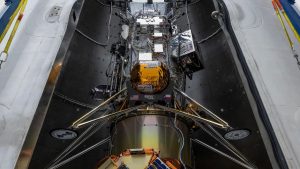The Download: AI’s gaming prowess, and calculating methane emissions

The news: A new AI agent from Google DeepMind can play different games, including ones it has never seen before such as Goat Simulator 3, a fun action game with exaggerated physics. Unlike earlier game-playing AI systems, which mastered only one game or could only follow single goals or commands, this new agent is able to play a variety of different games, including Valheim and No Man’s Sky.
How they did it: Researchers were able to get it to follow text commands to play seven different games and move around in three different 3D research environments. They trained it on lots of examples of humans playing video games, alongside keyboard and mouse input and annotations of what the players did. Then they used an AI technique called imitation learning to teach the agent to play games as humans would.
Why it’s a big deal: It’s a step toward more generalized AI that can transfer skills across multiple environments—and this sort of knowledge transfer between games represents a significant milestone for AI research. Read the full story.
—Melissa Heikkilä
Methane leaks in the US are worse than we thought
What’s happening: Methane emissions in the US are worse than scientists previously estimated, a new study has found. The research represents one of the most comprehensive surveys yet of methane emissions from US oil- and gas-producing regions, and found that emissions were significantly higher than previously estimated.
The big picture: The study highlights the urgent need for new and better ways of tracking the powerful greenhouse gas. The problem is, it’s basically impossible to use just one instrument to measure all the different methane sources. Read the full story.
—Casey Crownhart
To learn more about why methane emissions are still such a mystery, check out the latest edition of The Spark, our weekly climate newsletter. Sign up to receive it in your inbox every Wednesday.






